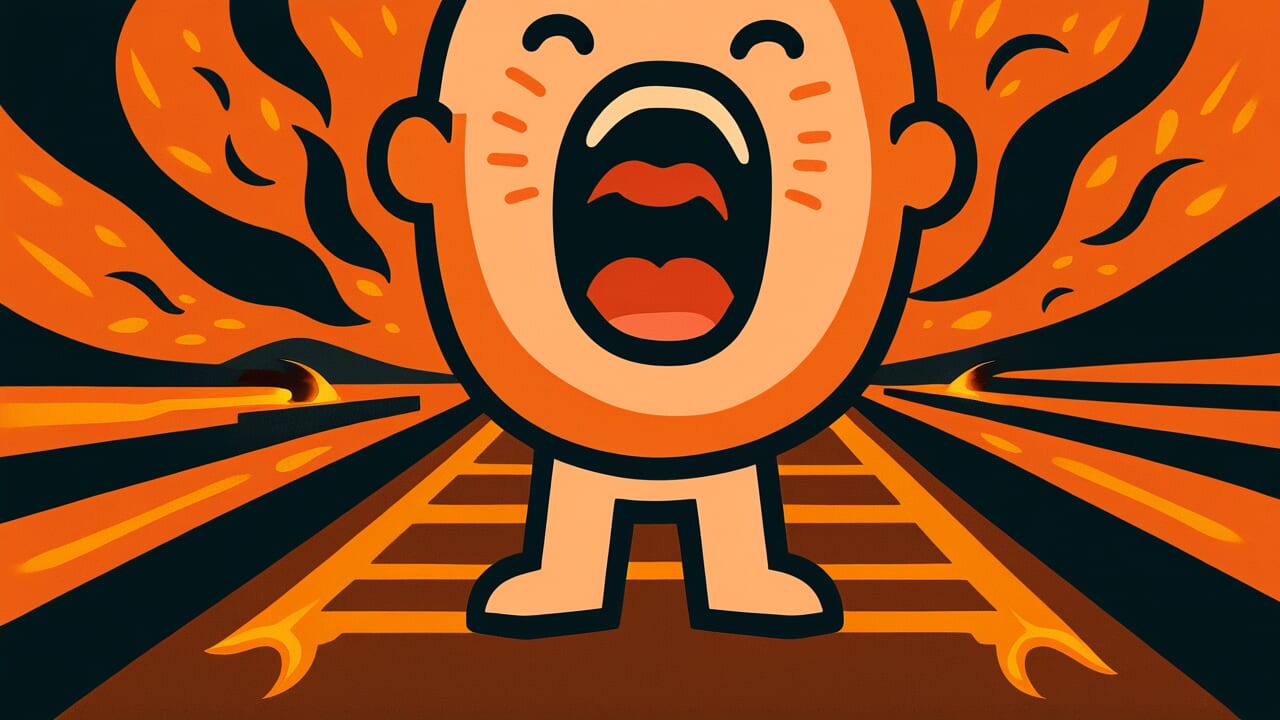How to Read “If you lie, you’ll go to hell”
Uso wo ieba jigoku e iku
Meaning of “If you lie, you’ll go to hell”
This proverb means that lying is morally wrong and will bring severe punishment, as serious as going to hell. The word “hell” refers to the Buddhist afterlife.
But it also includes suffering in this life, like losing people’s trust and feeling guilty.
People mainly use this saying when teaching children about honesty. Parents and teachers use the frightening image of “going to hell” to make a strong impression.
Showing a specific punishment works better than just saying “don’t lie.” It sticks in children’s minds more deeply.
Today, the religious meaning has faded. But people still understand it as a strong warning against lying.
The lesson remains important: one lie can destroy trust, ruin relationships, and ultimately cause suffering for yourself.
Origin and Etymology
No one knows exactly when this proverb first appeared in writing. It likely emerged as Buddhist thought became deeply rooted in Japanese society.
In Buddhism, lying is called “mougo” and is strictly forbidden. It’s listed as a serious sin in the Five Precepts and Ten Good Precepts.
Lying doesn’t just deceive others. It pollutes your own heart and brings bad results through the law of karma.
The concept of hell also comes from Buddhism. People widely believed it was a real place where you suffered after death based on your bad deeds in life.
During the Edo period, moral education flourished in temple schools called terakoya. Teachers taught Buddhist ethics to children using simple language.
Like the saying “If you lie, the King of Hell will pull out your tongue,” this proverb was probably used to teach children about honesty.
The structure of the phrase is very simple. The cause “if you lie” directly connects to the result “you’ll go to hell.”
Even young children can understand this clear relationship. This straightforward expression is one reason it has been used in moral education for so long.
Usage Examples
- When I was a child, my mother strictly told me “If you lie, you’ll go to hell,” so even now I can’t bring myself to lie
- That person lies without hesitation, but I wonder if they’ve never heard the saying “If you lie, you’ll go to hell”
Universal Wisdom
This proverb has been passed down for generations because humans constantly face the temptation to lie. Lying seems like a convenient way to protect yourself, avoid trouble, and gain benefits.
But our ancestors understood something important. They saw that temporary lies ultimately hurt the liar most deeply.
The human heart has a mysterious function called conscience. The moment you lie, even if no one notices, your heart definitely knows.
This guilt is the real “hell.” One lie calls for another lie. Eventually, a life built on lies becomes constant suffering, always fearing discovery.
You lose trust, become isolated, and can’t even believe in yourself. This isn’t hell after death. It’s hell experienced while still alive.
What’s interesting is that this proverb doesn’t command “don’t lie.” Instead, it presents a cause-and-effect relationship: “If you lie, you’ll go to hell.”
It doesn’t force morality on you. It shows it like a natural law. Just as you fall if you defy gravity, you suffer if you lie.
It’s an unavoidable consequence.
Humans aren’t perfect. Sometimes we give in to the temptation to lie. But this proverb reminds us of the value of honesty.
The refreshing feeling of speaking truth. The joy of being trusted. And most importantly, the strength to face yourself honestly.
These things are irreplaceable. They represent human dignity itself.
When AI Hears This
Even if you gain temporarily by lying, that information keeps spreading to others. Game theory research analyzes human relationships as repeated transaction games.
For example, imagine you lie to a friend and gain 100 yen. If it’s just once, you profit.
But that friend stops trusting you and tells others. Then next time, no one cooperates with you anymore.
Mathematician Axelrod’s experiments showed the most successful strategy in repeated games was “tit-for-tat.” You cooperate if they cooperate, and betray if they betray.
In this environment, lying even once means you lose cooperation forever after. You gain 100 yen, but the value of lost cooperation accumulates to 1,000 yen, then 10,000 yen.
What’s interesting is that this loss grows exponentially. Information about your lie spreads from person to person, damaging your reputation widely.
In modern times, this happens instantly on social media. If 10 people know, you lose all cooperation opportunities from each of those 10 people.
Hell might actually refer to the sum of infinite future losses. Not religious punishment, but mathematical inevitability created automatically by reputation systems.
Morality isn’t emotional reasoning. It’s a rational choice naturally derived from long-term benefit calculations.
Lessons for Today
This proverb teaches modern people that honesty is the foundation for a rich life. With social media and the internet, lying and detecting lies have both become easier than before.
But at the same time, recovering lost trust has become harder than ever.
What we can do in daily life is start by not telling small lies. Excuses for being late, hiding inconvenient facts, exaggerating to show off.
By accumulating these minor lies, we unknowingly chip away at our own credibility.
Being honest sometimes requires courage. Admitting failure, saying you don’t know, conveying unfavorable truths.
These may bring temporary awkwardness or disadvantage. But in the long run, your words gain weight and people trust you.
You don’t need to be perfect. When you make mistakes, you can honestly admit them and apologize. That’s enough.
The peace of mind from living honestly and the treasure of people’s trust are worth more than any temporary gain.



Comments